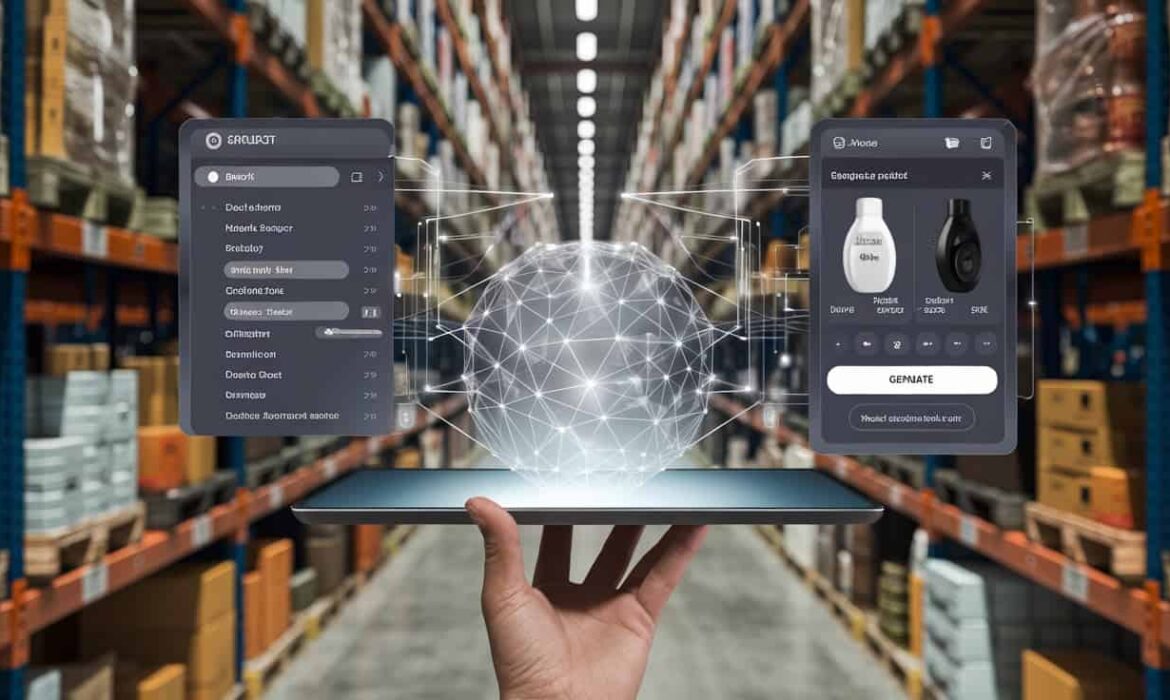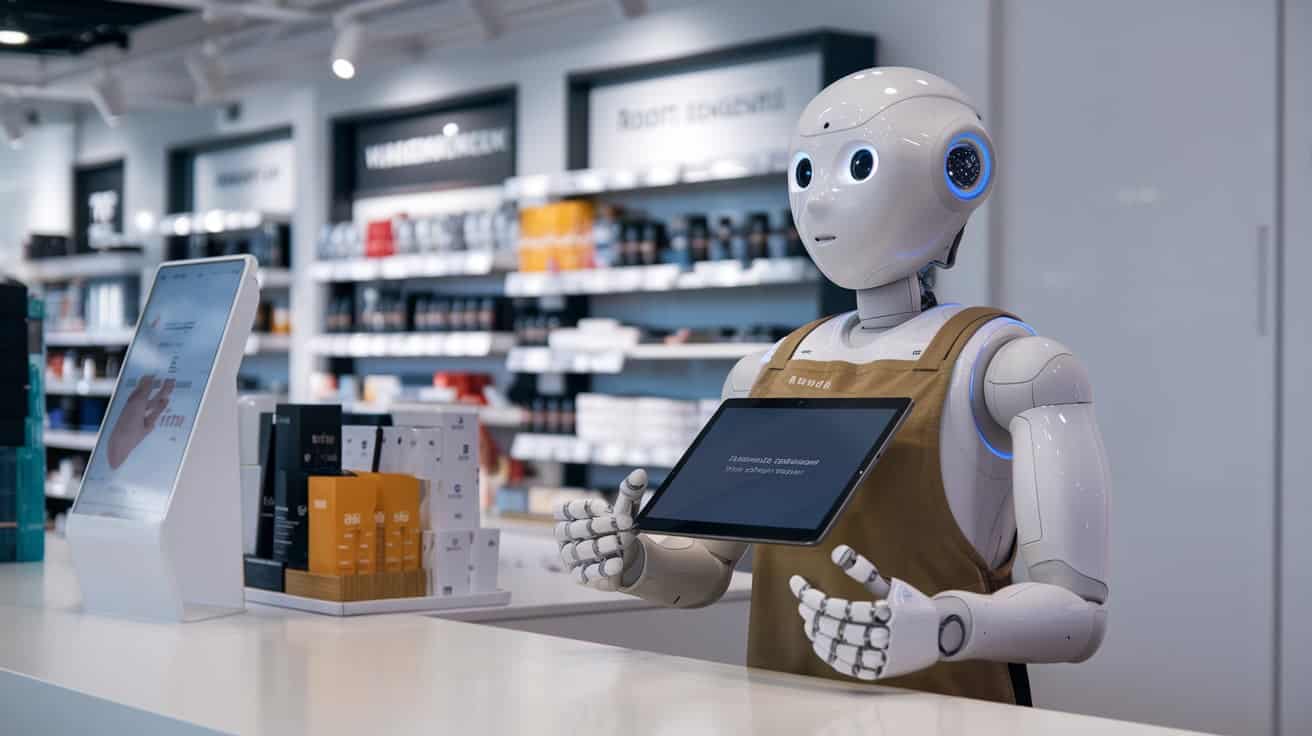As the e-commerce industry evolves, retailers face new challenges and opportunities, making it crucial to integrate Generative AI into their business strategies. This transformative technology is revolutionizing both front-end customer interactions and back-end processes, from personalized search suggestions and AI-generated collections to localized product content. By embracing Generative AI, brands can offer highly personalized shopping experiences, enhance customer engagement, and drive innovation, ensuring they stay competitive in a rapidly changing market. In this blog, we delve into the profound impact of Generative AI on e-commerce, exploring its role in personalized shopping, virtual try-ons, predictive fashion trends, and the future of AI-powered business models.
Personalized Shopping Experiences: AI in eCommerce
Personalization has become the cornerstone of modern eCommerce, and AI is at the forefront of delivering this tailored shopping experience. Generative AI analyzes vast amounts of customer data, including browsing history, past purchases, and even social media behavior, to create individualized recommendations. These personalized suggestions ensure that customers are presented with products that align with their preferences, increasing the likelihood of a purchase.
Beyond product recommendations, AI is enhancing the overall shopping journey. AI-driven chatbots provide real-time assistance, answering customer queries and guiding them through the buying process. These virtual assistants are not just reactive; they proactively suggest products, offer discounts and provide personalized content based on the customer’s behavior. This level of customization not only improves the customer experience but also fosters brand loyalty, as shoppers feel that the brand understands and caters to their unique needs.
Moreover, visual search capabilities powered by AI allow customers to upload images and find similar products, revolutionizing the way people discover new items. This feature is particularly valuable in the fashion industry, where style and aesthetics play a crucial role in purchase decisions. By leveraging AI, eCommerce platforms are creating a more intuitive, engaging, and personalized shopping experience that resonates with today’s consumers.
Virtual Try-Ons: Redefining Customer Engagement
One of the most significant challenges in online fashion retail is the inability for customers to physically try on products before making a purchase. Generative AI is addressing this issue through virtual try-ons, a technology that allows customers to see how clothes, accessories, or makeup would look on them without leaving their homes.
Virtual try-ons use AI to analyze a customer’s body shape, skin tone, and facial features, creating a realistic representation of how products will fit and appear. This technology not only enhances customer confidence in their purchase decisions but also reduces return rates, as customers are more likely to choose items that suit them well.
For example, AI-powered virtual fitting rooms enable shoppers to mix and match outfits, experiment with different styles, and see the results in real time. This interactive experience bridges the gap between online and in-store shopping, offering the convenience of eCommerce with the assurance of a fitting room experience. By redefining customer engagement through virtual try-ons, AI is helping retailers create a more immersive and satisfying shopping experience.
Predictive Fashion Trends: How AI is Shaping the Future
The fashion industry is notoriously fast-paced, with trends emerging and fading at a rapid pace. Generative AI is playing a pivotal role in predicting these trends, enabling retailers to stay ahead of the curve. By analyzing data from various sources, including social media, fashion shows, and consumer behavior, AI can identify emerging trends before they become mainstream.
This predictive capability allows retailers to optimize their inventory, ensuring they stock the right products at the right time. For instance, AI can forecast the popularity of certain styles, colors, or materials, enabling brands to respond quickly to changing consumer preferences. This agility is crucial in the fashion industry, where timing is everything.
Moreover, AI can help designers and brands experiment with new ideas, generating innovative designs based on current trends. These AI-generated designs can inspire fashion lines, allowing brands to create unique collections that resonate with consumers. By leveraging AI’s predictive power, retailers can not only keep up with the latest trends but also set new ones, establishing themselves as industry leaders.
How AI is Revolutionizing the Retail Industry
The impact of AI on the retail industry extends beyond eCommerce and fashion. Across the entire retail landscape, AI is driving innovation, efficiency, and customer satisfaction. From supply chain optimization to in-store experiences, AI is revolutionizing how retailers operate and interact with customers.
In supply chain management, AI is improving efficiency by predicting demand, optimizing inventory levels, and reducing waste. Machine learning algorithms analyze sales data, seasonal trends, and external factors such as economic conditions to forecast demand accurately. This enables retailers to manage their inventory more effectively, ensuring that popular products are always in stock while minimizing excess inventory.
In physical stores, AI is enhancing the shopping experience through technologies such as smart mirrors, automated checkout systems, and personalized promotions. Smart mirrors, for instance, allow customers to try on clothes virtually, offering styling suggestions based on their preferences. Automated checkout systems use AI to streamline the payment process, reducing wait times and improving customer satisfaction.
Moreover, AI-driven personalization extends to in-store promotions, where customers receive tailored offers based on their purchase history and behavior. This level of customization ensures that promotions are relevant, increasing the likelihood of a sale and improving the overall shopping experience.
The Future of Retail: AI-Powered Business Models
As AI continues to evolve, it is paving the way for new business models in the retail industry. AI-powered platforms are enabling retailers to offer highly customized products and services, catering to the specific needs and preferences of individual customers.
One emerging business model is the concept of hyper-personalization, where AI tailors every aspect of the shopping experience to the individual customer. This goes beyond product recommendations and extends to personalized pricing, marketing, and even product design. By leveraging AI, retailers can create unique experiences for each customer, differentiating themselves in a competitive market.
Another promising development is the rise of AI-driven marketplaces, where algorithms match customers with products and services that best meet their needs. These platforms use AI to analyze customer data, predict preferences, and curate personalized shopping experiences. This not only enhances customer satisfaction but also allows smaller brands to reach their target audience more effectively.
Generative AI is transforming the e-commerce retail industry by seamlessly integrating online and offline experiences, ensuring customers receive personalized and consistent interactions across all channels. By tracking online behavior, AI tailors in-store experiences with customized recommendations and promotions, enhancing customer engagement and satisfaction. As AI continues to advance, it is not only driving innovation in personalized shopping and virtual try-ons but also predicting fashion trends and unlocking new business models. Retailers who embrace this technology will be at the forefront of a fashion-forward, customer-centric future in commerce.








